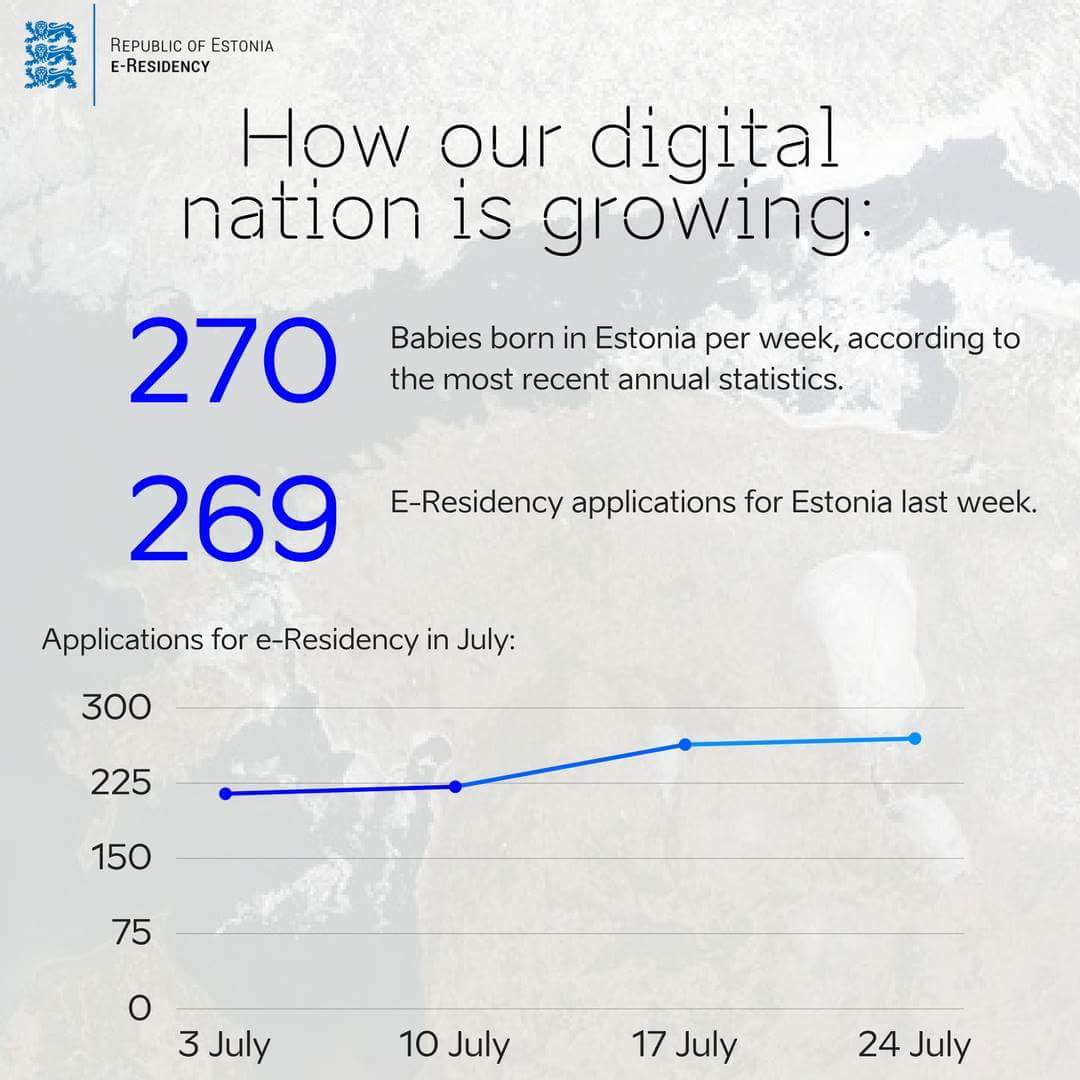Due to its digital citizenship program, something interesting is happening in Estonia. In July there were more new applications for e-citizenship than newborn babies. Are we witnessing the birth of the world's first digital nation?
A Digital Nation?
Despite counting only about one million inhabitants, Estonia is known for its outsized impact in the digital world. Skype, for example, comes from Estonia. And since December 2014, they've been allowing people from all over the world to become Digital Estonian citizens through an e-residency program. Many international companies and individuals have sought to become digital Estonians, because of the country's favorable entrepreneurial and business environment.
The ability to start a business remotely in a tech-friendly EU country has been the main factor driving applications. And applications are on the rise, with many well-known and influential people leading the way including Japan's prime-minister Shinzō Abe, German Chancellor Angela Merkel and even the host of The Daily Show, Trevor Noah. As a result, Estonia is becoming more than just a traditional nation. It is now turning into a "digital nation". And the opportunities this initiative provides make it an exceptional project for our digital era. Factors like location-independent international business and using government backed authentication technology are some of the reasons listed by people who apply. The amount of weekly e-residency applications is on the verge of surpassing the number of weekly births. This means that the digital population of Estonia is growing faster than its real population.
More E-Residents Than Babies
According to recent data in the last week of July, 270 babies were born in the whole of Estonia. In the same period, there were 269 new e-Residency applications from all over the world. These numbers often fluctuate, as you can see here, yet they are clear enough to prove a point: 22.000 people from 138 countries have chosen to become digital Estonians, bringing with them flourishing business and entrepreneurial opportunities. According to the Estonian president Kersti Kaljulaid, governments need to continuously innovate in order to remain relevant in the digital era.
 Information from the program's official Twitter page.
Information from the program's official Twitter page.
This is one of the many initiatives this country has taken to lead the way into the governance of the digital age. Other initiatives include secure online voting, tax filling and all sort of government registrations.
The UK is one of the countries whose citizens are looking at Estonia to advance their business, especially after Brexit. Also, the Estonian bureaucratic infra-structure is also very high quality, offering an easier way to deal with business than other countries. Seems like User Interface is quickly becoming an important factor in international economic competition.
Estcoins: An Estonian Cryptocurrency
As a consequence of the success of the e-residency program, a wide conversation has also begun around an Estonian cryptocurrency. A cryptocurrency is a digital currency that uses encryption techniques to regulate the generation of units of currency and verify the transfer of funds, operating independently of a central bank.
 Bitcoin and Ethereum are two popular forms of cryptocurrency.
Bitcoin and Ethereum are two popular forms of cryptocurrency.
An Estonian digital currency could be a potentially valuable additions to the e-residency program. Their inherent advantages would combine with the transparency and regulation that the backing of the Estonian state would provide.
In conclusion, incorporating digital currencies in the Estonian already advanced and tech-friendly infra-structure would be another step towards the digitization of government and finance. As a small technologically advanced nation, Estonia has the ideal conditions to pioneer new ways to govern and to do business in the 21st century. Will this prove to be a wise move on the Baltic nation's behalf? Will other countries take its lead?
Sources: Kaspar Korjus' Medium Page, The Next Web, Telegraph, Wired. Image: Estonia.ee


Comments (0)
Share your thoughts and join the technology debate!
No comments yet
Be the first to share your thoughts!